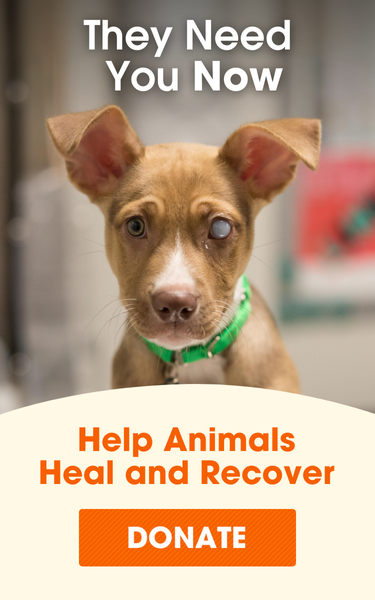
What Is Dogfighting and What Can We Do to Stop It?

National Dogfighting Awareness Day (NDFAD) is just days away on April 8, and we’re asking people like YOU, supporters and animal lovers alike, to take a stand against dogfighting, one of the most horrific forms of animal cruelty.
To help you better understand what dogfighting is and how you can help victims, we compiled a list of commonly asked questions to give you a more in-depth look.
What Is Dogfighting?
Dogfighting is a type of blood sport in which dogs are forced to fight one another for the entertainment and/or profit of spectators. Although dogfighting is a felony in all 50 states and the District of Columbia, Guam, Puerto Rico and the U.S. Virgin Islands, it continues to occur in every part of the country and in every type of community. In the past decade, the ASPCA has assisted with approximately 200 dogfighting cases in at least 24 states and has impacted nearly 5,000 victims of dogfighting through rescue, consultations and investigations.

What Happens in a Dogfight?
Fights can last from a few minutes to several hours, and both animals may suffer severe injuries including puncture wounds, lacerations, blood loss, crushing injuries and broken bones. Many dogs later succumb to their injuries and losing dogs are often discarded, killed or brutally executed.

Which Dogs Are Used in Dogfighting?
Many different breeds are used throughout the world, however, in the United States it is most commonly the American Pit Bull Terrier. Other breeds and mixes are reportedly used in street fights or as “bait” dogs used by some to train fighting dogs.
It is important to note that this does not mean that pit bulls are not great family dogs.

How Are Dogs Raised and Trained to Fight?
Dogs who are being trained to fight are kept isolated from other dogs and most people. They often spend their lives on heavy chains or in a small, enclosed space, never knowing love or a safe home. The conditioning of fighting dogs may make use of a variety of legal and illegal drugs including anabolic steroids to enhance muscle mass and encourage aggressiveness.

If Dogfighting Is So Widespread, Why Don’t More Cases Come to Light?
Dogfighting is a violent and highly secretive activity that is extremely difficult for law enforcement and investigative professionals to infiltrate. A dogfighting investigation can require many of the same skills and resources as a major undercover investigation.
Additionally, since animals caught up in dogfighting cases are both property and “evidence”—much like a stolen car—they can’t be rehomed without legal approval. In some cases, these dogs may end up waiting months or years in shelters, sometimes leading to extreme distress and behavioral decline despite their caregiver’s best efforts. In addition, the expense of long-term care could negatively impact some shelters ability and willingness to house animals seized in dogfighting cases, and without a place to house and care for these animal victims, fewer animals may be saved overall.

What Can I Do to Help?
Educate yourself and others. Read up on how to spot signs of dogfighting, spread the word on social media or even talk about it with your friends. Many people are not aware that dogfighting is still so widespread.
Make an effort not to overlook or judge former dogfighting victims. Dogfighting survivors can go overlooked in shelters due to common misconceptions. Unfortunately, these dogs, many times pit bulls, are often unfairly deemed “dangerous or potentially dangerous” based solely on their breed. But many of these dogs are not aggressive at all—all they want is someone to give them the love they deserve and a home to call their own. If you’re looking to adopt, we hope you keep an open mind and an open heart, or if your home is not right for a furry friend, consider donating to our lifesaving efforts for animals suffering from cruelty and abuse.
Fight policies that discriminate against certain dog breeds, like pit bull-mixes, German Shepherds and Rottweilers. Dogs who resemble these breeds are often unfairly judged by how they appear, not by how they behave. As a result, landlords, insurance companies, city officials and other entities develop misguided protocols that are not supported by data and have never proven effective at increasing public safety. Instead, they wrongly punish responsible pet owners and well-behaved dogs. Join the ASPCA Mobile Action Team to help advance legislation that prohibits discriminatory policies and removes barriers for families with pets.

For more information on the above questions, read the ASPCA’s A Closer Look at Dogfighting.
Thank you for using your voice, your compassion, your outrage and your determination to stop the suffering and give dogs in need the second chances they deserve.
